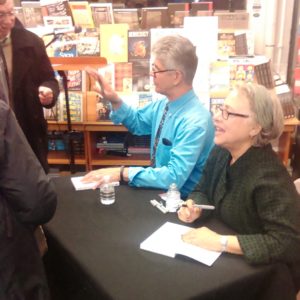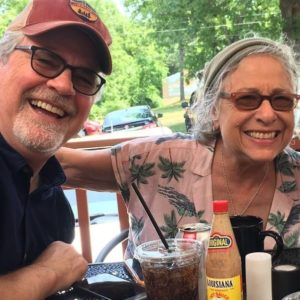At first, it is a shock to be marginalized from others’ lives, to discover that our children have grown up to live on their own and that society has somehow gone on, for better or worse, without us in the lead. Later, it comes as another jolt to realize those times when we may no longer need—or want—the distraction relationship entails.
We actively seek solitude, enjoy our own company, and can’t be bothered with small talk or entanglements. Invariably, interactions with others deplete or at least complicate our lives. The intensity of relatedness we once craved—that defined us—becomes a burden to be shed. Oh, we can keep the relationships going, if we like. But dear God, please not the drama.
There is freedom in this and joy as the distinct contours of one’s inner terrain become revealed, begging to be explored and enjoyed. We surprise ourselves every day, experiencing an intimacy of relatedness to our de-peopled world beyond anything previously known.
But is it possible to go too far? One believes one is choosing freedom, but when the phone stops ringing, emails slow down, visits become special events rather than part of one’s routine? Is this a slippery slope leading not to solitude–intimacy with one’s inner life and with God–but to loneliness? Separation from God?
When one is young, there is no second-guessing the urge for solitude. One closes the door to refresh one’s self but the baby cries and it’s back to the fray. But when there is no cry to call you back, does sinking into solitude serve as an end in itself? Or is one somehow not only missing something important, but the point? Perhaps both are true—another paradox of age. But I have at least the beginning of an answer. For those of us who have overinvested in years of busyness, productivity and noise, better to meet this core question—this tension—in silence, at least until the angst quiets and certainty emerges spontaneously.
This is the risk that age demands we take: to believe that our deepest, quietest urge for connection to God can be trusted. If one is meant to return to the active life, it can be God’s cry, not a baby’s, that will summon us. And if we return, out of quiet rather than agitation, we do not leave what we have discovered of ourselves behind. Rather, we bring our deepened relationship to ourselves, to life and to God with us.
To Continue Reading, CLICK HERE
This excerpt provides a preview of the complete Older, Wiser, Fiercer: The Wisdom Collection, available now in paperback and Kindle eBook editions. To purchase, click HERE.
____________________________________
Join the conversation about Carol Orsborn’s Older, Wiser, Fiercer: The Wisdom Collection in the comment section below this entry. To comment on the Collection as a whole, click HERE and scroll to the comment section below the Prologue.




